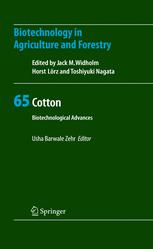

Most ebook files are in PDF format, so you can easily read them using various software such as Foxit Reader or directly on the Google Chrome browser.
Some ebook files are released by publishers in other formats such as .awz, .mobi, .epub, .fb2, etc. You may need to install specific software to read these formats on mobile/PC, such as Calibre.
Please read the tutorial at this link: https://ebookbell.com/faq
We offer FREE conversion to the popular formats you request; however, this may take some time. Therefore, right after payment, please email us, and we will try to provide the service as quickly as possible.
For some exceptional file formats or broken links (if any), please refrain from opening any disputes. Instead, email us first, and we will try to assist within a maximum of 6 hours.
EbookBell Team

4.8
74 reviewsThe food, feed, ?ber, and fuel needs of the changing world pose the challenge of doubling or tripling of world food, feed, and ?ber production by the year 2050 to meet the needs of a 11 billion global population. In addition, the dramatic changes in food prices in the recent years further warrant that production and productivity need to be enhanced to ensure adequate supplies. Biotechnology can make a signi?cant contribution to this effort as demonstrated by cotton and other crops; the new advances in biotechnology have made it possible to develop plants that contain genes that were not possible to be developed by sexual means. Cotton has been a leader in the use of biotechnology. With the introduction of Bt cotton, followed by stacked cotton products (insect and herbicide tolerance) and extensive use of molecular breeding tools, cotton cultivation has been much improved. The contributions in this book illustrate the scienti?c advances that are going on in cotton and the impact they continue to deliver for all cotton growers. Twelve percent of the global cotton area is now under biotech products at 15. 5 million ha. The primary bene?ts from using genetically engineered cotton include reduced insecticide use, lower production costs, improved yields, lower farming risks, and increased opportunities to grow cotton in areas of severe pest infestation.